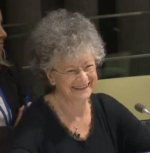Social Watch news
Published on Mon, 2015-09-14 09:24
"The UN must champion a process of truth and reconciliation" in development, said Barbara Adams, on behalf of Global Policy Forum and Social Watch during a round table at the United Nations in New York. Adams emphasised that "those who have benefitted the most from the past and current model are those that need to change the most". |
Published on Sun, 2015-09-13 10:52
Thousands of people have had their lives destroyed by the activities of multi-national corporations. Oil spills in Nigeria and gas leaks in India have killed, maimed and caused lasting environmental damage. Yet, these people and their families have struggled to hold the perpetrators to account and receive damages to ameliorate their suffering. This lamentable situation could be addressed by consensus between states around the world to develop a treaty that ensures human rights violations do not go unpunished (or, at least uncompensated). In the 21st century such a treaty is both a legal and moral necessity. Here is why. |
Published on Sat, 2015-09-12 17:56
The Supreme Court (SC) has ordered the executive and legislative departments to answer a recent petition of anti-pork barrel advocates against the government’s spending of lump sum and discretionary funds in this year’s budget. In session yesterday, the justices decided to require the Palace and both houses of Congress to comment on the petition for certiorari and prohibition filed last Sept. 1 by Social Watch Philippines, led by former national treasurer Leonor Briones. |
Published on Sat, 2015-09-12 07:48
The Palestinian Non-governmental Organizations Network (PNGO) raised concerns and warned of a dangerous deterioration in the humanitarian situation in the Gaza Strip due to severe drop-long power cuts caused by the fuel outage. PNGO stated that power outage in the besieged Gaza Strip seriously affects basic life facilities in particular health,water, education and sanitation as well as vital sectors. PNGO demanded the international community and Arab and Palestinian parties as well to immediately carry on their responsibility to find real time and strategic solutions to the power cut offs in the Gaza Strip. |
Published on Sat, 2015-09-12 07:36
The United Nations General Assembly adopted a resolution on principles to guide sovereign debt restructuring processes on the afternoon of 10 September. This landmark resolution was submitted to the General Assembly by South Africa (current chair of the Group of 77 and China developing countries). It was initiated by Argentina in the wake of the vulture funds lawsuit by an international hedge fund against the country. |
Published on Sat, 2015-09-12 07:22
The Basic Principles on Sovereign Debt Restructuring Processes, promoted by members of the Group of 77 developing countries and China, reflect demands regarding the need to establish fairer and more equitable debt restructuring mechanisms that social organizations have been making since the 1990s. Principle number 8 recognizes that restructurings must respect human rights and contribute to “sustained and inclusive” economic growth in debtor countries to minimize the economic and social costs of financial crises. This mirrors some of the points that a group of 100 social organizations underscored last year regarding the capacity of States to strike accords with a majority of their creditors that guarantee the economic, social and cultural rights of their populations. We also contended at that time that the resolution of debt-related conflicts between a State and its creditors should be based on Public International Law and International Human Rights Law. |
Published on Wed, 2015-09-09 10:49
On September 10, the UN General Assembly will vote on a resolution to adopt “Basic Principles on Sovereign Debt Restructuring Processes” (“Basic Principles”). The “Basic Principles” bring to a culmination work by a committee of the UN General Assembly that concluded last July. While they bring to closure the work of this body, at the same time they represent the first step in a process towards introducing institutions that can deal on a more fair and humane way with situations of sovereign debt crises, a demand that had been at the forefront of civil society struggles for a long time. |
Published on Wed, 2015-09-02 11:36
Peter Niggli was honoured by the Swiss development community with a farewell party last August 27 in Bern, as he retired after 17 years at the helm of Alliance Sud, the Swiss coalition of development NGOs. Parliamentarians, government officials, journalists and NGO colleagues expressed their recognition. Speakers highlighted Niggli's contribution to the 2011 Swiss decision to increase ODA to 0.5% of GDP, which is a major step forward even if short of the 0.7 international target. On behalf of the Social Watch network, of which Alliance Sud is the Swiss member, Roberto Bissio summarised Niggli's contribution as having taught a lesson in commitment. |
Published on Tue, 2015-09-01 14:11
Are you interested in actionable information to promote social change? Are you an advocate for gender equality or women’s economic empowerment? The WORLD Policy Analysis Center (WORLD) is offering an opportunity to learn about its unique set of tools – interactive maps, data, and easy-to-understand factsheets on rights, laws, and policies affecting women’s equal opportunities and empowerment in 193 countries. |
Published on Mon, 2015-08-24 12:27
OZAMIZ CITY, Philippines—The proposed Freedom of Information (FOI) law is dead, and President Aquino and Speaker Feliciano Belmonte should share the blame for its fate. Thus declared a group of advocates who have been pushing Congress for years to enact the measure that would allow greater access to public records and help reduce corruption in government. “(W)ithout decisive support from the President and the leadership of the House of Representatives, the bill will not pass,” read the statement from the Right to Know, Right Now! Coalition which has been campaigning for the FOI bill for more than 15 years. |
SUSCRIBE TO OUR NEWSLETTER











